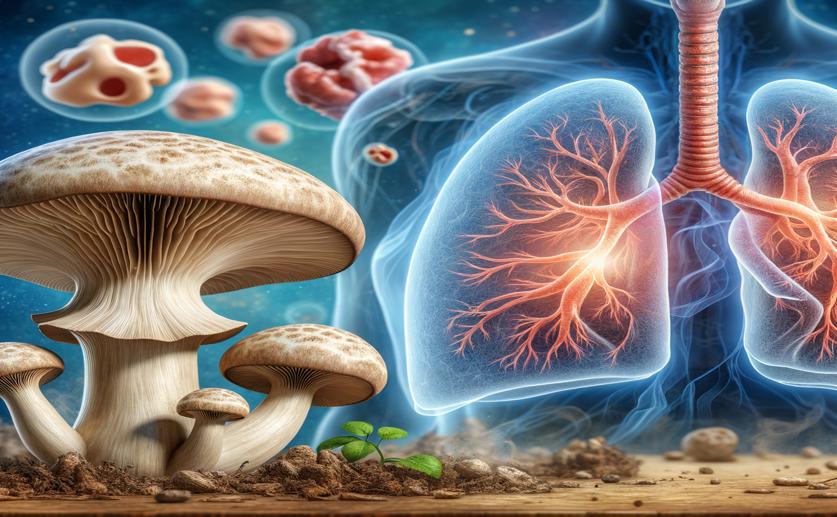
How Poria Cocos Extract Helps Reduce Acute Lung Injury
Jenn Hoskins
1st June, 2024

Image Source: Natural Science News, 2024
Key Findings
- Researchers at Hubei University of Chinese Medicine found that Poria cocos oligosaccharides (PCO) significantly improved lung injury and reduced inflammation in mice
- PCO alleviated lung edema by regulating proteins that maintain fluid balance in lung tissues
- The study identified specific metabolic pathways and biomarkers that PCO modulates to reduce inflammation and oxidative stress
References
Main Study
1) Metabolomic profile of plasma approach to investigate the mechanism of Poria cocos oligosaccharides attenuated LPS-induced acute lung injury in mice.
Published 29th May, 2024
https://doi.org/10.1016/j.jpba.2024.116262
Related Studies
2) The acute respiratory distress syndrome.
3) Phytochemistry and Pharmacological Activities of Wolfiporia cocos (F.A. Wolf) Ryvarden & Gilb.
4) Diuretic activity of some fractions of the epidermis of Poria cocos.



 28th May, 2024 | Jenn Hoskins
28th May, 2024 | Jenn Hoskins